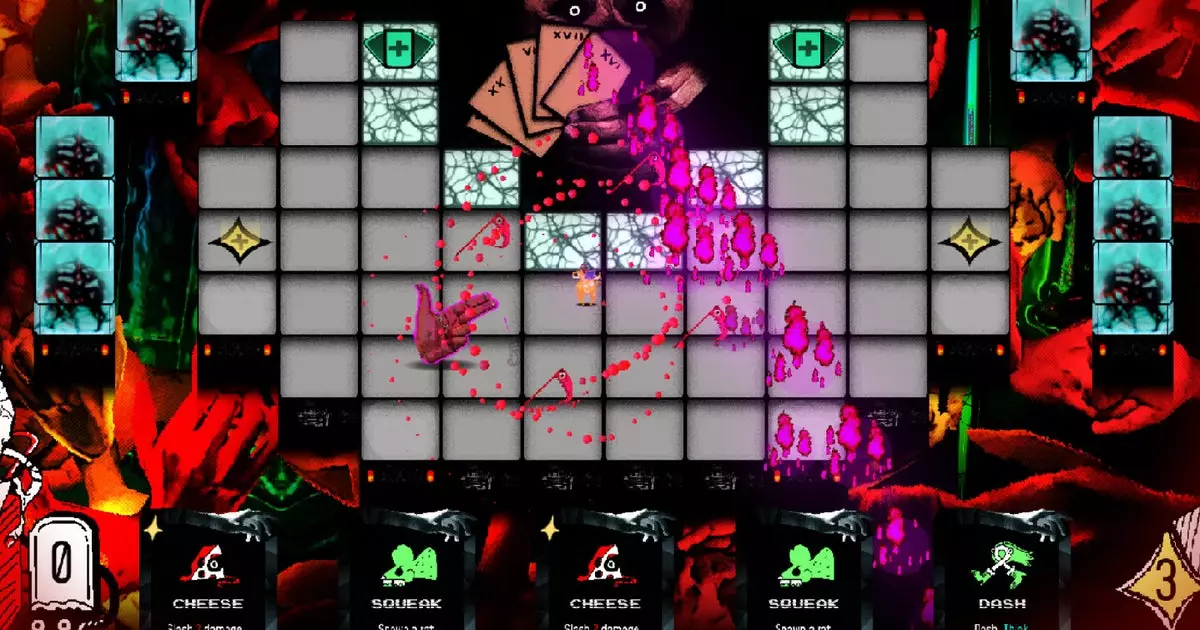In the world of video games, rare gems that manage to combine absurdity with creativity stand out amid conventional gameplay experiences. One such offering is LYMBUS: Incomplete Edition, a roguelike bullet hell game birthed from the creative minds at Happy Accident Studios. Often viewed through the lens of both irritation and intrigue, this title invites players to embark on a surreal journey through humanity’s collective subconscious. The premise is notable not just for its unique narrative but for the chaotic gameplay that makes it a memorable experience.
The Concept: A Dive Into the Deep End
Set against the backdrop of a dystopian 19XX, LYMBUS serves as an exploration of neuromechanical research gone awry. The era is defined by innovation, where the boundaries between technology and humanity blur. However, as with many grand ideas, this one crumbles due to oversight. After a catastrophic crash leaves the majority of humanity in a comatose state, players find themselves thrust into an impromptu rescue mission. The challenge? Navigate the labyrinthine corridors of the unconscious mind, collecting fragmented memories that have become the key to recovery.
What’s compelling here is the game’s ability to reflect real-world themes pertinent today—primarily, the repercussions of technological advancements without foresight. LYMBUS serves as a haunting reminder of dependence on technology, urging players to reflect on their own interactions with the digital realm.
At its core, LYMBUS is a cacophony of strategy and sheer chaos—a bullet hell that relishes in both its frantic pace and intricate mechanics. Movement is straightforward: players maneuver through the landscapes using their keyboards. However, every action that unfolds beyond that necessitates the deployment of cards, which serve a dual purpose of attack and defense.
The strategy lies in carefully curating a deck suitable for combat. Players must consider not only what cards to include but also how to manage resources effectively amidst the whirlwind of incoming fire. Once the bullets start flying, everything spirals out of the players’ control, inducing a palpable tension as decisions must be made in real time. The game thus fosters a unique blend of calculated strategy and frenetic energy, leading to an adrenaline-fueled experience.
Part of what makes LYMBUS so compelling is its meta-commentary on the self and the absurdity of existence. With visuals and themes reminiscent of a Hall of Mirrors, players encounter not only obstacles but elements of their own psyche represented in bizarre and perplexing ways—think distorted reflections that provoke both laughter and contemplation.
Yet, it is this quirky encapsulation of identity—presented as charming yet grotesque—that resonates with players. By facing bizarre challenges while unraveling layers of memory, LYMBUS invites introspection, enticing players to grapple with their own consciousness through the lens of the game’s absurdity.
As we await the full release of LYMBUS later this year, there is a palpable excitement about how this unique title will evolve. With its wild blend of strategy-driven mechanics, rich narrative, and a humorous yet unsettling flair, LYMBUS asserts itself as a standout title in a crowded marketplace. While it incorporates the chaotic nature of bullet hell games, it also poses poignant questions about technology’s role in our lives, undoubtedly leaving players eager to dive back into their memories and confront the intricate tapestry of their identities. Don’t let the chaos deter you; it may very well lead to thrilling discoveries about yourself in the process.

